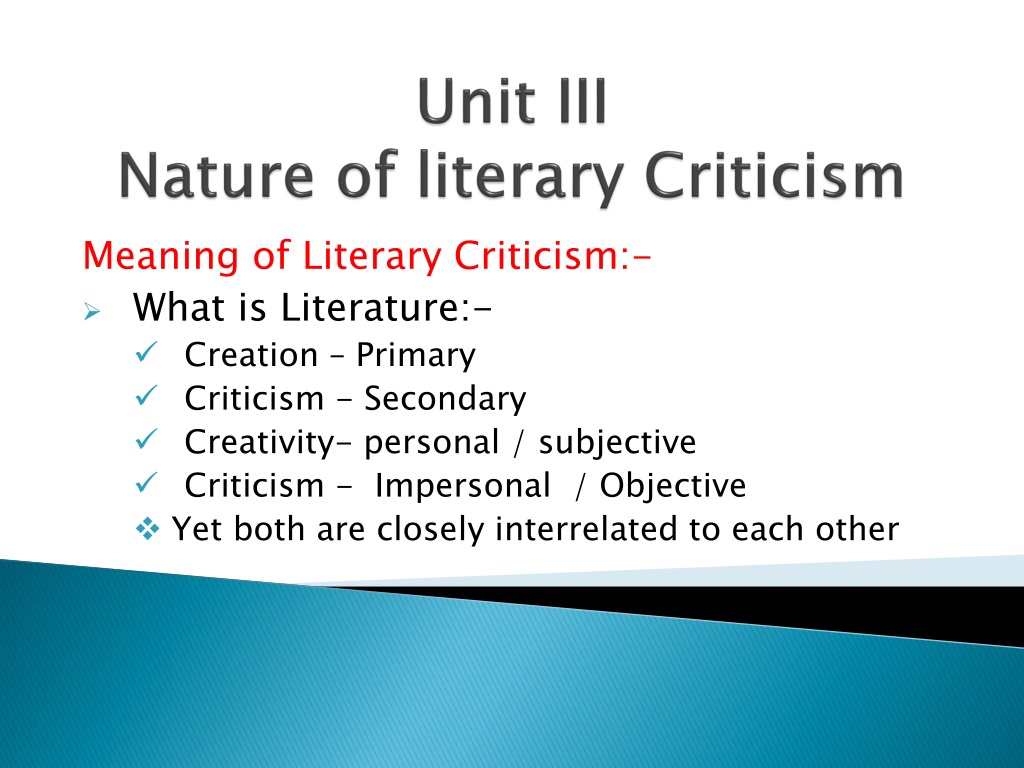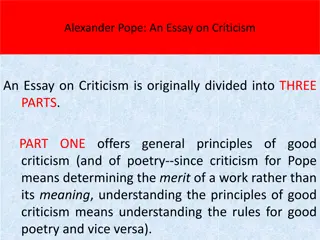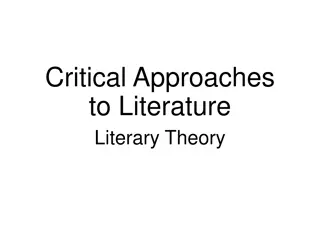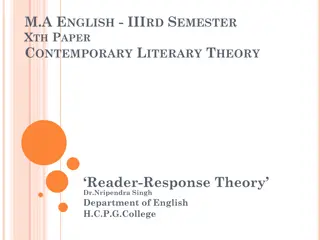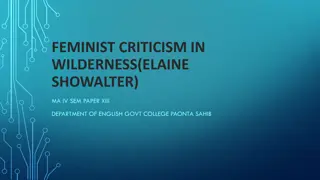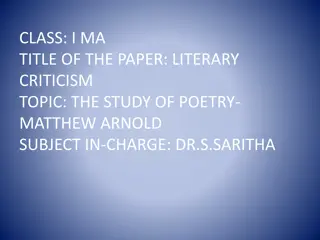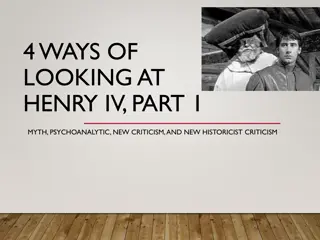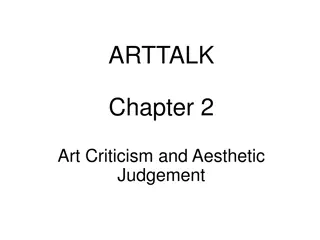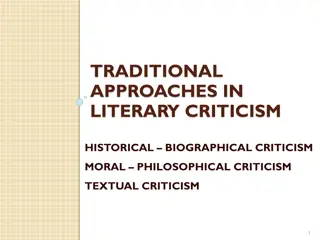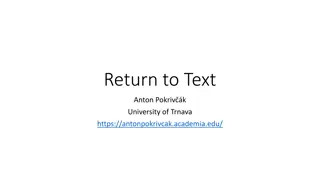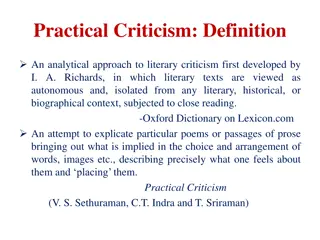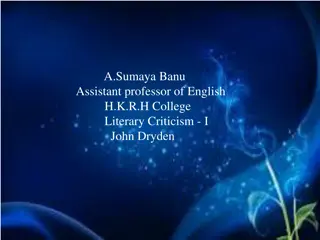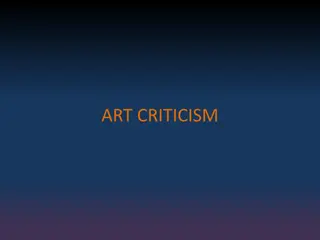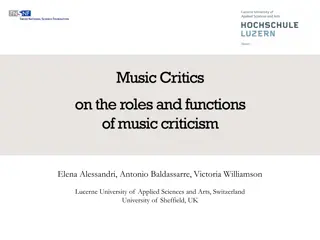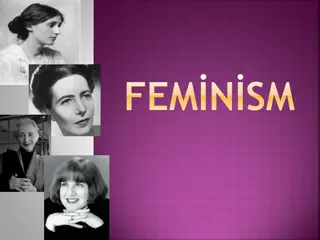Understanding Literary Criticism: Exploring the Art of Interpreting and Evaluating Literature
Literary criticism, rooted in ancient Greek and Roman traditions, involves interpreting, analyzing, and evaluating literary works. It has evolved over time, encompassing various theories and approaches to engage with literature critically. From mimetic theory to analytical criticism, different perspectives offer unique insights into understanding and appreciating literature, enhancing readers' critical thinking skills and broadening their literary horizons.
Download Presentation

Please find below an Image/Link to download the presentation.
The content on the website is provided AS IS for your information and personal use only. It may not be sold, licensed, or shared on other websites without obtaining consent from the author. Download presentation by click this link. If you encounter any issues during the download, it is possible that the publisher has removed the file from their server.
E N D
Presentation Transcript
Meaning of Literary Criticism:- What is Literature:- Creation Primary Criticism - Secondary Creativity- personal / subjective Criticism - Impersonal / Objective Yet both are closely interrelated to each other
In Greek Krites a judge Krino- to judge Kritikos- Literary Critic Literary interpreting, analyzing and evaluating works of literature. Since ages Literary criticism was considered as an art of writing especially poetry. Around 17thCentury its been applied to the modern interpreting and evaluating. criticism is the discipline of terms of analysis and judging,
In English john Dryden is the first who used the explains innocence in 1677. Dryden instituted by Aristotle, was meant a standard of judging well. Thomas Carlyle views, Critic stands like an interpreter between the inspired and the uninspired. Walter interpreting art term criticism the in modern in sense. State He of term his The writes, Criticism as it was first Pater, Criticism is the art of
improves general reading skills awareness of different approaches the development of critical thinking skills explore beyond their boundaries sense of confidence and responsibility about developing your own critical standards and judgments
Theory Approach is the specific method, or viewpoint a critic or reader has Theory Approach
mimetic theory mimetic theory expressive theory New Criticism objective theory. Practical criticism Historical criticism Impressionistic criticism Impressionistic criticism Analytical criticism Judicial criticism Moral criticism Mythic criticism etc
Literary criticism begins with the Greeks but little of their work has survived for e.g. Aristotle s Poetics From Romans Horace Ars Poetica From Christian era Louginus On His Sublime Later in 19thcentury Wordsworth s Preface to the Lyrical Ballads (1800), Coleridge s Biographia Literaria (1817) Shelley's Defence of Poetry (1820)
Literary Criticism is significant:- James Scott writes, There is no work of Art, which is not preceded by Criticism . Lit. Criticism is a disciplined activity. But its not a discipline in and of itself. It must be related to something i.e. work of art. It defines, describes, analyse, judge, interpret and ultimately evaluates a literary work.
Text Language Characters Socio-historical, cultural, political milieu Writer- as a person / as a creator
Analysis Judgment But I. A. Richards views that Criticism as a discipline must go beyond the recovery of meaning to judge the work in question. We as students of literary criticism must keep in standards external to the work itself mind that evaluation depends upon
Literary works are evaluated either in terms of their art or in terms of their message This criteria for each are drawn from our larger , abstracted concepts of what is worthy or unworthy.
